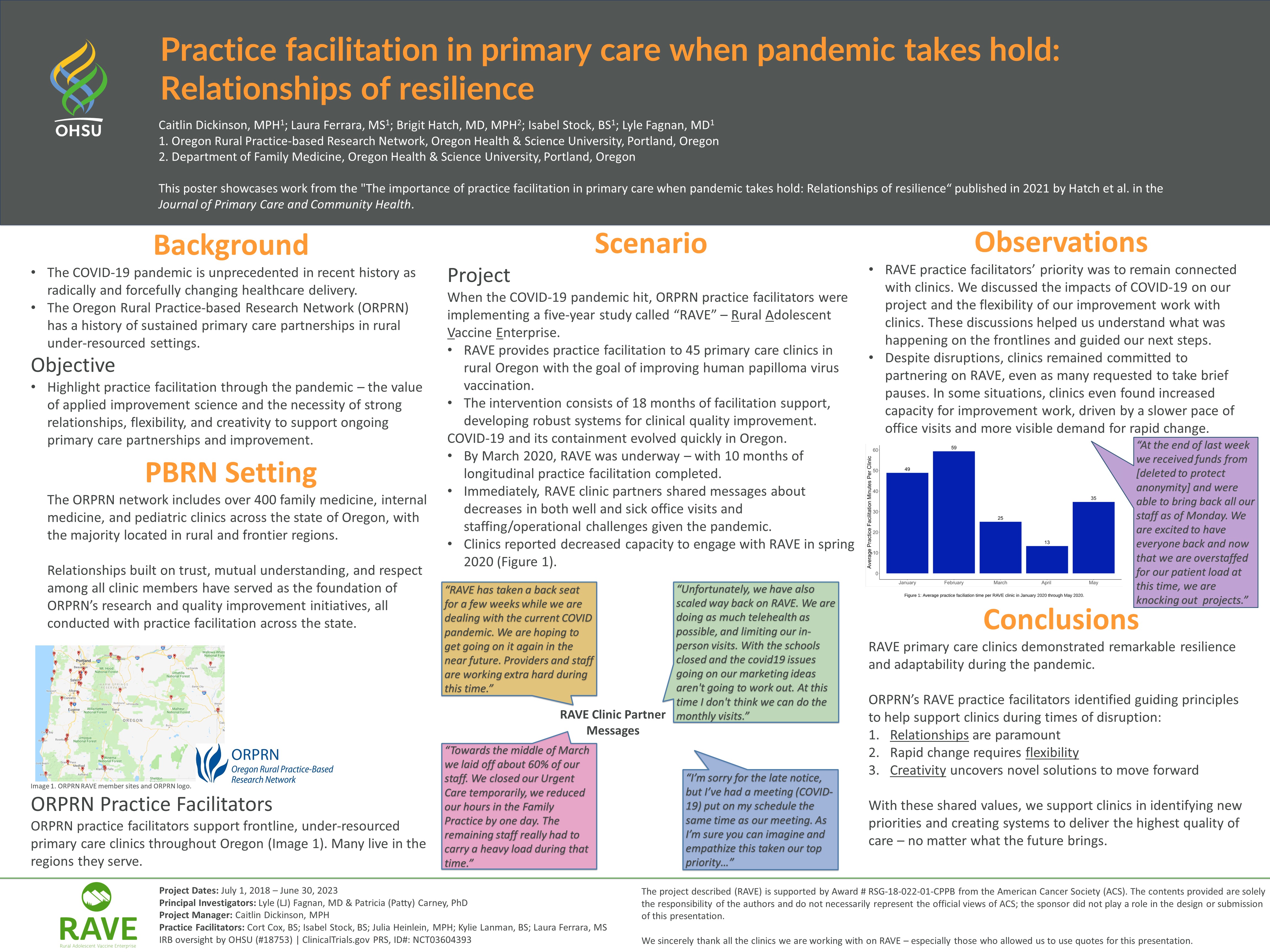PC02: Practice facilitation in primary care when pandemic takes hold: Relationships of resilience
Caitlin Dickinson, MPH
Abstract
The COVID-19 pandemic is unprecedented in recent history as radically and forcefully changing healthcare delivery. The Oregon Rural Practice-based Research Network (ORPRN) has a history of sustained primary care partnerships in rural under-resourced settings. This poster highlights practice facilitation through the pandemic—the value of applied improvement science and the necessity of strong relationships, flexibility, and creativity to support ongoing primary care partnerships.
2) Setting
ORPRN’s practice facilitators have a history of supporting frontline under-resourced primary care clinics. The ORPRN network includes over 400 family medicine, internal medicine, and pediatric clinics across the state of Oregon, with the majority located in rural and frontier regions. Relationships based on trust, mutual understanding, and respect among all clinic members have served as the foundation of ORPRN’s research and quality improvement initiatives, all conducted with practice facilitation across the state.
3) Methods
When the COVID-19 pandemic hit, ORPRN practice facilitators were implementing a five-year study called “RAVE,” the Rural Adolescent Vaccine Enterprise, funded by the American Cancer Society. RAVE provides practice facilitation to 45 primary care clinics in rural Oregon with the goal of improving Human Papilloma Virus vaccination. The RAVE intervention consists of 18 months of support developing robust systems for clinical quality improvement.
The COVID-19 pandemic and its containment plan evolved quickly in Oregon. By March 2020, RAVE was well underway – with 10 months of longitudinal practice facilitation completed. Immediately, RAVE clinic partners shared messages about decreases in both well and sick office visits. However, the RAVE team’s priority was to remain connected with clinics during this time.
4) Results
Despite disruptions, clinics remained committed to partnering on the RAVE study. In some situations, clinics even found increased capacity for improvement work, driven by a slower pace of office visits and more visible demand for rapid change.
4) Conclusions or next steps
Through these unparalleled times of change, primary care clinics have demonstrated remarkable resilience and adaptability. RAVE practice facilitators identified guiding principles to help support clinics: (1) Relationships are paramount; (2) Rapid change requires flexibility; and (3) Thinking creatively can uncover novel solutions.

Gillian Bartlett (NACRG President)
gillian.bartlett@health.missouri.edu 8/5/2021Great work - exactly what I expect from OHSU. This is relevant beyond practice facilitation so glad to see this being presented.